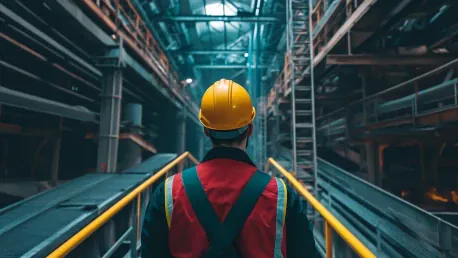The proposed legislation to abolish the Occupational Safety and Health Administration (OSHA), introduced by Rep. Andy Biggs, presents a contentious issue with significant potential impacts on workplace safety and regulatory practices across the United States. Employment attorney Phillip Russell has staunchly argued against the feasibility of such a bill, positing that it stands little chance of becoming law due to OSHA’s established and critical role in ensuring workplace safety. Even if the bill were to receive President Donald Trump’s support, Russell maintains that it would struggle to pass through the Senate, primarily due to the filibuster and the recognized importance of OSHA.
Legislative Obstacles and Probability of Passing
Despite the bold proposal to dissolve OSHA, several legislative hurdles make its actual enactment highly unlikely. The filibuster in the Senate serves as a significant barrier, requiring a supermajority vote to pass most legislation. Given OSHA’s long-standing role in protecting workers and its crucial function in enforcing safety standards, gaining the necessary support from both partisan and bipartisan sides seems improbable. Moreover, the established importance of OSHA in preventing workplace injuries and fatalities undermines the necessity of Biggs’ bill, as even critics acknowledge the indispensable role of the agency.
Employment attorney Phillip Russell’s assertion further highlights the legislative challenges. He emphasizes that OSHA’s contributions to workplace safety are well-documented and deeply ingrained in the American workforce’s fabric. The agency has been instrumental in reducing work-related injuries, illnesses, and deaths since its creation in 1970. Given this historical context and OSHA’s proven effectiveness, the proposition of dissolving such an entity encounters substantial resistance from not only lawmakers but also from labor organizations and the general public. Russell’s expert opinion paints a picture of legislative inertia where the proposal, despite its political motivations, remains a distant possibility.
Trump’s Impact on OSHA Regulations
The Trump administration’s broader regulatory agenda has already made significant waves, particularly impacting OSHA’s operations and potential future regulations. One of President Trump’s directives involves halting the issuance of new rules, which includes OSHA’s proposed heat injury and illness standard. This halt has mandated that agencies repeal existing regulations before introducing new ones, essentially creating a regulatory gridlock. Russell notes that these restrictions contribute to the standstill on advancing new safety standards, notwithstanding public opposition.
Furthermore, the Trump administration’s reduction efforts in federal workforce headcount through employee buyouts demonstrate a clear intention of minimizing federal presence. This strategy, while aiming to create a leaner federal government, poses risks to OSHA’s operational capacity and field enforcement strength. Specifically, the return-to-office mandate that requires federal employees to physically return to workplaces is viewed positively by Russell, who believes it could enhance the development of compliance officers. However, this optimistic outlook is tempered by concerns over whether such steps might weaken OSHA’s overall effectiveness in enforcing safety regulations if the agency’s workforce becomes diluted or fragmented.
Future of Workplace Safety Regulation
The proposed legislation to abolish the Occupational Safety and Health Administration (OSHA), introduced by Rep. Andy Biggs, has generated considerable debate due to its potential repercussions on workplace safety and regulatory practices across the United States. Employment attorney Phillip Russell has strongly opposed the feasibility of such a bill, contending that it has little chance of becoming law given OSHA’s established and vital role in maintaining workplace safety standards. Even with backing from President Donald Trump, Russell argues that the bill would encounter significant hurdles in the Senate. The primary challenge would be overcoming the filibuster, coupled with the widespread acknowledgment of OSHA’s crucial importance. The agency plays an indispensable role in protecting workers’ health and safety, making the likelihood of its abolition slim. This legislation has not only raised legal questions but also incited discussions on the impact such a drastic measure could have on the safety of American workers and the enforcement of regulatory practices nationwide.









